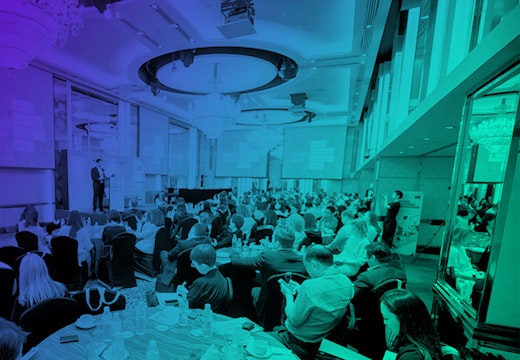Future thinking shapes Seattle conference
How can we shift our mindset towards building a more positive and equitable future? This was the question that was at the forefront of everyone’s mind at WORKTECH Seattle 2023
How can we predict what the future will hold? How does our mindset affect the futures that we shape with our behaviour and beliefs? And what tools are needed to prepare for oncoming change? All these questions and more were discussed at the WORKTECH Seattle conference, held at Peoplespace on 5 October 2023.
How to think like a futurist
Literature and science fiction may not be the first things you turn to when you want to understand what the world will be like in a decade’s time, but Professor Brian David Johnson of Arizona State University and Futurist in Relevance for Frost & Sullivan is out to change your perspective. In this talk, he addressed the concerns we might have about the future – the changing technology landscape, cultural shifts, conflicts, climate change and unstable economies.
All these factors can be difficult to tackle at once, leaving individuals and companies feeling the heat. But Professor Johnson believes that through thinking about narrative and imagined futures, companies can equip themselves to take on the big issues of the day. Tackling citywide trends, the role of AI in the workplace and the future purpose of the office, Johnson gave a masterclass in futurist thinking, equipping audience members with the skills to drive their organisations forward.
An AI state of mind
How new technologies will transform the workplace is also a major area of consideration for companies trying to stay on top of the game. With 12 million workers being predicted to switch their occupation completely by 2023 in the USA alone, it’s clear that for good or bad the workplace AI revolution is coming.
But change prompts serious questions: what will happen to office workers in this new world of work? How can we retrain people to meet this shift in demand? Gurneet Singh Dandona, Senior Expert and Associate Partner at McKinsey & Company, addressed these seismic shifts, sketching out the latest estimates for how workplaces can grapple with the onslaught of change.
Neurodiversity in focus
Ensuring that workspaces support a wide range of needs is crucial to creating an inclusive working environment, but how can companies know what type of support their employees need? The answer lies with having open and honest conversations according to a panel moderated by Jemma Radick, Experiential Design Director at IA, with Abigail Donovan, Designer at IA and Danielle Bowman, Manager of Client Engagement at PeopleSpace.
The contributors aimed to inspire fresh thinking about what is missing from the current workplace model and how we could redesign the workplace in the future to include neurodiverse workers.
Hybrid purpose and empathetic working
Why do we work and what is work’s purpose in our lives in an increasingly hybrid era? These are some of the questions that Tomi Tiekko, Head of Empathetic Building at Haltian, was investigating in his talk on the proactive reimagination of the workplace. He challenged people to have the courage to challenge the status quo and move the workplace forwards, requiring brave steps from leadership to increase their empathy towards employees.
Find out more about the WORKTECH Seattle conference 2023 here.








